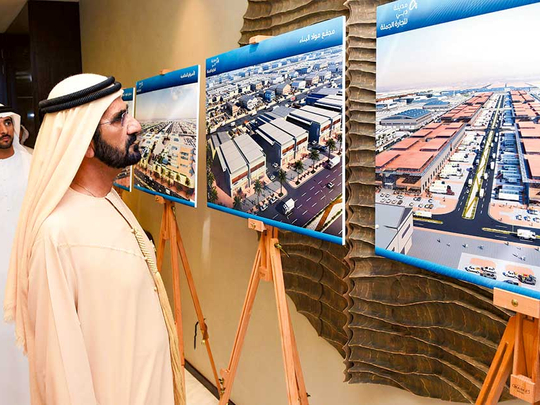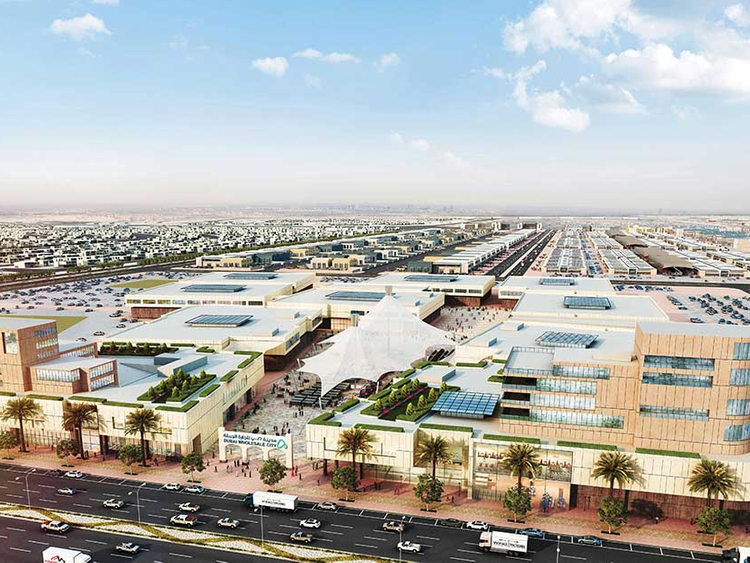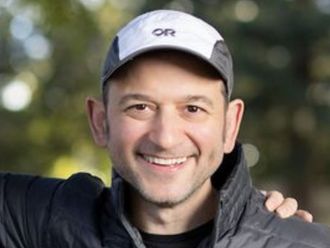
Dubai: Playing to its strengths, Dubai is creating another mega free zone cluster with the launch of Wholesale City, taking up 550 million square feet in and around Dubai South (with its Al Maktoum International Airport) and Jebel Ali port. The intention, clearly, is to develop the emerging land corridor in on continuous stretch and cater to the all-important trade (including re-exports) and retail sectors.
“The Dubai Government has done more than its fair share in recent times to create world class infrastructure, greatly benefiting companies looking to operate in this logistics hub,” said David Godchaux, CEO of Core, the UAE associate of real estate services firm Savills. “This has created a lot of underlying demand for quality logistics space from occupiers who see all the advantages of being located in Dubai. This new city will be one more very good example of that.”
The announcement also answers what Dubai intends to do to continue stoking momentum into its real estate space once the Expo 2020 jamboree is over. In addition, the City will smooth the entire process of receiving and delivering the goods within that extended land corridor.
“China has these mega special economic zones that consolidate key economic activities from within city limits to the outside,” said Rizwan Sajan, Chairman of Danube Group. “Dubai has reached such a point in its traditional commercial nerve centres such as Nasr Square in Deira and Meena Bazaar in Bur Dubai. It’s time to move such activities catering to the wholesale trade outside of the city.
“Once the infrastructure is ready, businesses will follow — Wholesale City’s proximity to the airport and seaport is what will make it a winning proposition. For the building materials trade, the City would be the right fit.”
The project is expected to involve more than 15,000 wholesale traders, those who are already active in the market and many first-timers.
Investors are likely to be watching closely. Already, developers have been heading in the direction of Dubai South, the mega-city that includes a logistics zone, residential and office components, and an exhibition cluster apart from the world’s largest airport.
Plots in the emirate’s other industrial parks are just as favoured. The beneficiaries have been Dubai Investments Park, Dubai Industrial City and smaller clusters such as Techno Park.
With the Wholesale City now emerging from the drawing board, “It will continue to offer investors the ability to capitalise on land value appreciation — a trend witnessed in the last few years,” said Sameer Lakhani, Managing Director of Global Capital Partners, the consultancy. “The establishment of another free zone is another example of the city’s continuing reliance on free zones to stimulate sector-specific activity.
“Dubai is transforming its next-generation economy towards a platform led by trade, tourism, logistics and finance.”
In keeping with the magnitude of what is being planned, the project will have a long gestation period. As such, investors will need to have deep reserves of patience over what they can expect as returns and when.
According to Godchaux, “The challenge faced by the Wholesale City — similar to what we witnessed with Dubai South — will be to create interest from private investors to take the development risk and lease units out rather than just build to suit, which is unfortunately limited to the largest players.
“The issue is we don’t have enough private investment yet to develop quality facilities for occupiers. This is a challenge we have seen with DIP (Dubai Investments Park) and this is something which also affects Dubai South, despite very good potential return ratios and strong underlying demand.”
According to Core data, industrial property rental values in Dubai South are between Dh45-Dh60 a square foot, while those at Jebel Ali Industrial Area are fetching Dh35-Dh45 a square foot now. Those in the Jebel Ali Free Zone are Dh40-Dh60 per square feet.
Free zones thrive in Dubai’s landscape
• Dubai has over the years made attempts to consolidate one industrial or trading activity through the creation of specialised free zones. This led to the development of one for the textile trade and another for the selling of second-hand vehicles.
• The UAE is also pushing ahead with a slew of new development activity. “Despite the emergence of economic headwinds over the past 18 months, it is highly positive to see the UAE government continuing to prioritise areas such as transport and social infrastructure,” according to the property consultancy CBRE. “The recent approval of projects worth over $1.9 billion across the country reflects a sustained commitment to improve the overall quality of life, whilst also further heightening the appeal of the region’s most attractive investment destination for foreign capital.”













